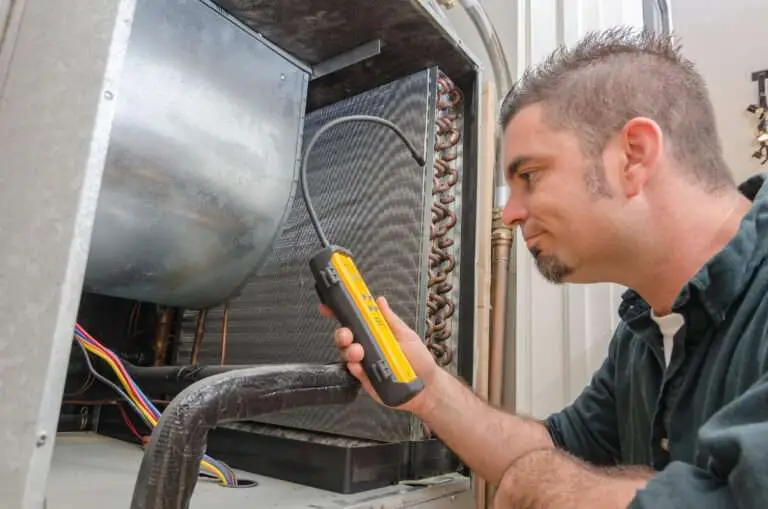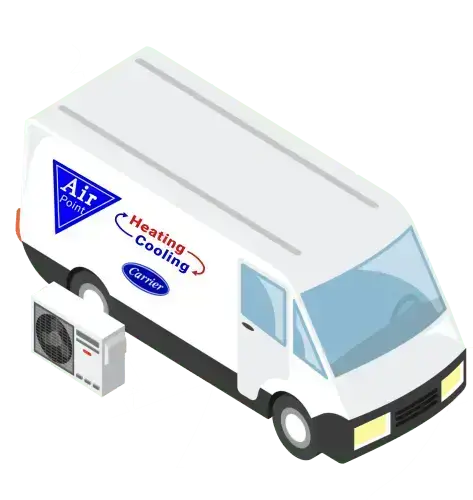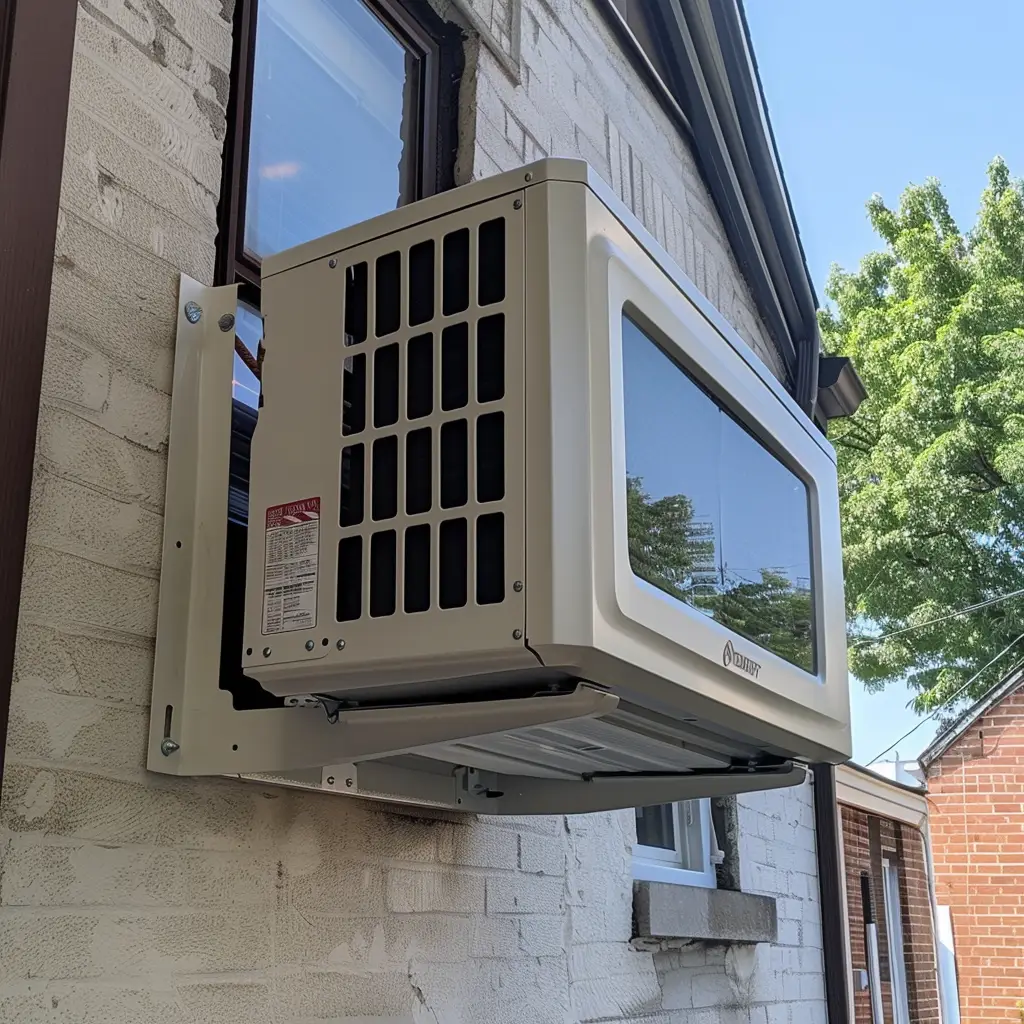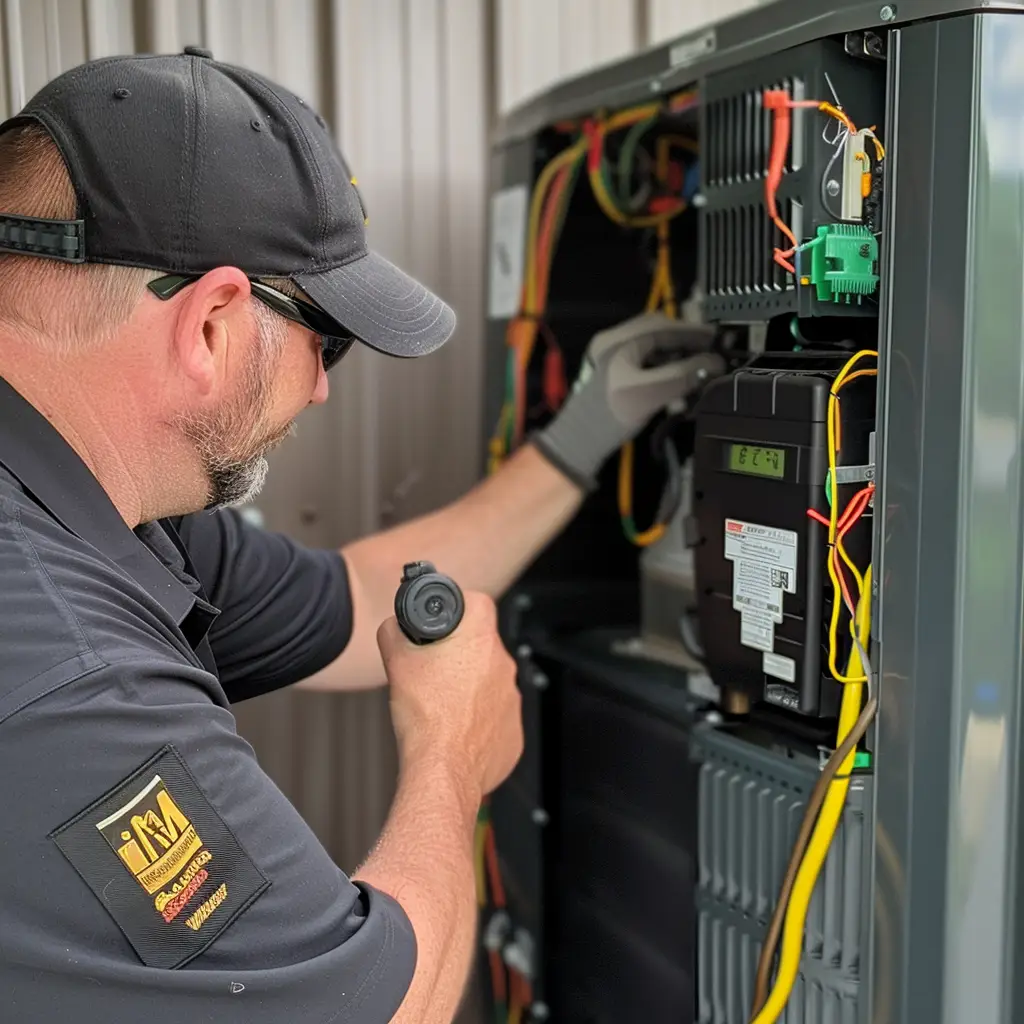Is your AC not blowing cold air? There is no doubt that this is an extremely uncomfortable and frustrating experience for homeowners. When your air conditioner fails to cool, it’s no fun. The cooling system is vital to the comfort of millions in Toronto during the summer.
Your system may not be cooling, but it doesn’t necessarily need costly repair or replacement. Try these basic troubleshooting tips to diagnose the issue. However, it’s important to consider your annual air conditioner service for preventative maintenance.
There are several possible reasons why your air conditioner might not be blowing cold air. Here are a few common causes:
Low refrigerant levels
Low refrigerant levels in your air conditioner can cause your AC to not blow cold air for a few reasons. First and foremost, refrigerant is responsible for absorbing and releasing heat as it circulates through the system. When refrigerant levels are low, there is less of the substance available to absorb heat from the air. As a result, the air coming out of the vents may not be as cold as it should be.
Additionally, low refrigerant levels can cause the compressor, which is responsible for compressing the refrigerant, to work harder. This leads to the compressor overheating, which reduces the efficiency of the AC and results in a lack of cool air.
There are several potential causes of low refrigerant levels in an air conditioner. One common cause is a leak in the system, which can allow the refrigerant to escape. If your unit is improperly installed, there may not have been enough refrigerant added to begin with.
It’s important to address the issue as soon as possible to prevent further problems with your air conditioner. If low refrigerant levels are causing your unit to not blow cold air, call an HVAC technician to diagnose the problem. Only properly certified experts can handle refrigerant, an EPA-approved chemical. Your HVAC contractor will repair the refrigerant leak and replace the coolant so your home will be cool again.
Dirty air filter
A dirty air filter can cause your air conditioner to not blow cold air for a few reasons. Firstly, a dirty air filter restricts the flow of air through the AC, reducing its efficiency and causes it to struggle to cool the air. This can result in the air conditioner blowing warm or lukewarm air rather than cool air.
Secondly, a dirty air filter can cause the air conditioner to freeze up. As the air filter becomes clogged with dirt, it can restrict the flow of air to the evaporator coils. These coils are responsible for absorbing heat from the air inside your home. When they don’t get enough airflow, they become too cold and frost over. This causes the air conditioner to stop blowing cold air altogether, leading to reduced efficiency and increased energy consumption.
To prevent these problems, it’s important to regularly clean or replace the air filter in your air conditioner.
How to clean your air conditioner’s air filter:
- Turn off the power: Before you start working on your air conditioner, make sure to turn off the power to the unit. This will prevent any accidental electrocution while you’re handling the air filter.
- Locate the air filter: The air filter is typically located either in the return air grille (the vent where air is drawn into the unit) or in the air handler (the large cabinet that houses the blower and the evaporator coil). Refer to your owner’s manual for the exact location of the air filter in your unit.
- Remove the air filter: Once you’ve located the air filter, remove it from the air conditioner. Depending on your unit, you may need to remove a panel or a grate to access the filter. Some filters are held in place with screws or clips, while others may simply slide out.
- Clean the air filter: Depending on the type of filter you have, you can either wash it or replace it. If you have a washable filter, rinse it thoroughly under running water and allow it to dry completely before reinstalling it. If you have a disposable filter, discard the old one and install a new one.
- Reinstall the air filter: Once the air filter is clean or replaced, slide it back into place and reattach any panels or grates you removed to access it.
This will help ensure that the air conditioner is operates efficiently, and ensures that it continues to blow cool air. As a general rule, clean or replace your air filter every month, depending on the condition of the filter and the usage of your air conditioner. If you have pets or allergies, you may need to clean or replace the filter more frequently.
Malfunctioning thermostat
A malfunctioning thermostat can cause your AC to not blow cold air for a few reasons. First, if the thermostat is malfunctioning, incorrect signals may be sent to the AC to adjust the temperature. In this case, there is no cold air because the AC is not running or the temperature is not set correctly.
Additionally, if the thermostat is not reading the ambient temperature accurately, it may send signals to the air conditioner to turn off or adjust the temperature incorrectly. For example, if the thermostat is reading the temperature as being lower than it actually is, it may turn off the air conditioner when it’s still too warm in the room. As a result, the air coming out of the vents may not be as cold as it should be.
There are several potential causes of a malfunctioning thermostat, including a dead battery, loose wiring, or a malfunctioning sensor. If you suspect that your thermostat is causing your air conditioner to not blow cool air, it’s a good idea to have a professional HVAC technician diagnose and fix the problem. In the meantime, you can try troubleshooting the issue by checking the battery and checking for any visible signs of damage or loose wiring.
Clogged condenser coils
A clogged condenser coil can cause your AC to not blow cold air because it prevents the unit from dissipating heat effectively. Located in your air conditioner’s outdoor unit, the condenser coils are responsible for releasing the heat absorbed by the refrigerant as it circulates.
Condenser coils clogged with dirt and debris, are unable to dissipate the heat effectively. Due to this, the refrigerant is inadequately cooled before it is sent back into the indoor unit. This can lead to warmer air coming out of the vents than it should be.
There are several potential causes of clogged condenser coils, including a lack of maintenance, dirty air filters, and debris accumulation. Keep your outdoor unit clean of debris and regularly change your air filter to avoid your condenser coils becoming clogged.
Faulty compressor
The compressor is responsible for compressing the refrigerant and sending it through the system. If the compressor is malfunctioning, the air coming out of the vents may not be cold enough.
If your compressor fails, your air conditioner will not blow cool air since it compresses the refrigerant and sends it through the system. The compressor will not effectively compress the refrigerant if it is damaged, which reduces the efficiency of the air conditioner and results in warmer air coming from the vents.
There are several potential causes of a faulty compressor, including overuse, improper installation, and age. A compressor can also fail due to a lack of maintenance or a refrigerant leak. You can try to reduce the workload on your air conditioner by keeping the thermostat set at a higher temperature and using fans to circulate the air in your home.
Hire an HVAC company for your air conditioner repair
It’s important to hire a professional HVAC company to fix your air conditioner problem for a few reasons:
- Expertise: HVAC technicians are trained and experienced in diagnosing and fixing air conditioner problems. They have the knowledge and skills to identify the root cause of the issue and perform the necessary repairs to get your air conditioner working properly again.
- Safety: Working on an air conditioner can be dangerous if you’re not trained in the proper techniques and safety measures. HVAC technicians are trained to handle and work with refrigerant, electrical components, and other potentially hazardous materials and equipment.
- Efficiency: A professional HVAC technician will be able to quickly and accurately diagnose and fix your air conditioner problem, which can save you time and money in the long run. They will also be able to identify and fix any underlying issues that could cause problems in the future.
- Warranty: Many HVAC companies offer warranties on their work, which can give you peace of mind and protect you from unexpected expenses.
A professional HVAC company can diagnose the problem if your air conditioner isn’t delivering cold air. Ignoring the issue can lead to more serious problems down the road and may result in costly repairs. Make sure you research and compare different HVAC companies in your area to find one that meets your needs.





